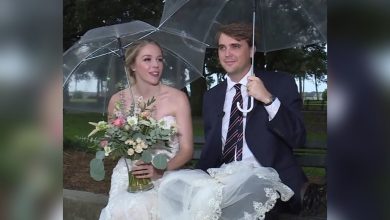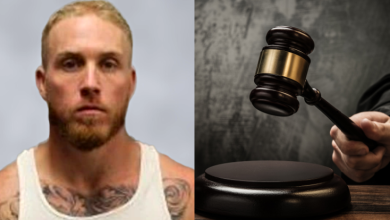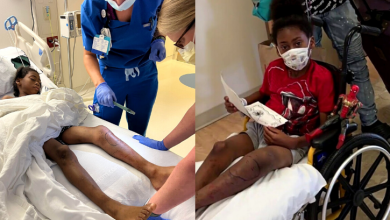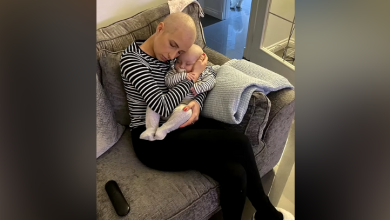‘America is coming back together’ Biden says for a July Fourth celebration in the White House
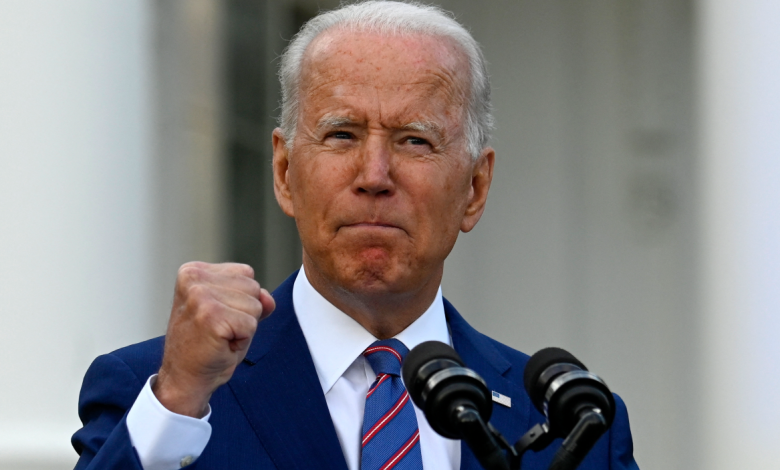
President Biden has been in the office for nearly six months now and most of the people agree that he is doing well in the pandemic and vaccination efforts so far. In his Fourth of July celebration speech in the White House where he hosted more than 1,000 people, President Joe Biden was determined to party.
“Today, all across this nation, we can say with confidence: America is coming back together,” Biden declared Sunday. The celebration was hosted on the South Lawn of the White House.
Biden wanted all Americans to celebrate, too, after enduring 16 months of disruption in the pandemic and more than 605,000 deaths. The White House encouraged gatherings and fireworks displays all around the country to mark — as though ripped from a Hollywood script — the nation’s “independence” from the virus.
And there is much to cheer: Cases and deaths from COVID-19 are at or near record lows since the outbreak began, thanks to the robust U.S. vaccination program. Businesses and restaurants are open, hiring is picking up and travel is getting closer to pre-pandemic levels.
Still, it’s hardly a “Mission Accomplished” moment. More than 200 Americans still die each day from COVID-19, a more infectious variant of the virus is spreading rapidly at home and abroad, and tens of millions of Americans have chosen not to get the lifesaving vaccines.
“If you’ve had the vaccine, you’re doing great,” said Dr. Mati Hlatshwayo Davis, an infectious disease physician at the John Cochran VA Medical Center and St. Louis Board of Health. “If you haven’t had the vaccine, you should be alarmed and that’s just the bottom line, there’s no easy way to cut it.”
“But that doesn’t take away from the fact that this country is in a significantly better place,” she said.
For Biden it was a long-awaited opportunity to highlight the success of the vaccination campaign he championed. Sunday’s South Lawn event was the largest yet of his presidency, the clearest indication yet that the U.S. has moved into a new phase of virus response. Shifting from a national emergency to a localized crisis of individual responsibility, the nation also moved from vaccinating Americans to promoting global health.
“This year the Fourth of July is a day of special celebration. for we’re emerging from the darkness of a year of pandemic and isolation, a year of pain fear and heartbreaking loss,” the president said before fireworks lit up the sky over the National Mall.
Noting the lockdowns that shuttered businesses, put millions out of work and separated untold numbers of families, Biden said, “Today we’re closer than ever to declaring our independence from a deadly virus. That’s not to say the battle against COVID-19 is over. We’ve got a lot more work to do.”
Indeed, the president has come up short of the vaccination goal he had set for the Fourth with great fanfare. Biden had hoped to have 70% of the adult population vaccinated by Sunday, but clocked in at about 67%, according to figures from the Centers for Disease Control and Prevention. Officials insisted that the miss would have little practical effect on Americans’ ability to mark the Independence Day holiday.
What concerns them more is the emergence of two disparate realities in the U.S.: the gap between heavily vaccinated communities where the virus is dying out and lesser-vaccinated ones where the new delta variant is already taking hold.
About 1,000 counties have a vaccination rate below 30%, and the federal government is warning that they could become the next hot spots as virus restrictions ease.
“The best defense against these variants is to get vaccinated,” Biden said at the White House, calling vaccination “the most patriotic thing you can do.”
To that end the administration is sending “surge” teams to Colorado and Missouri. Additional squads of infectious disease experts, public health professionals and doctors and nurses are getting ready to assist in additional locations with a combination of low vaccination rates and rising cases.
Overall, the vastly improved American landscape stands in stark contrast with much of the rest of the world, where there remain vast vaccine deserts and wide community spread that could open the door to even more dangerous variants. The Biden administration is increasingly turning the federal response to the complicated logistics of sending excess U.S. vaccines abroad in an effort to assist other nations in beating back the pandemic.
With U.S. demand for vaccines falling even as they have been widely available for months, and as governments and businesses dangled an array of incentives at Americans to get a shot, officials are increasingly emphasizing that the consequences of disease now largely reflect the individual choices of those who are not yet vaccinated.
“The suffering and loss we are now seeing is nearly entirely avoidable,” said the CDC’s director, Dr. Rochelle Walensky.
When asked about the potential risks of holding gatherings around July Fourth in areas where there are large pockets of unvaccinated individuals, White House press secretary Jen Psaki has countered that “if individuals are vaccinated in those areas, then they are protected.”
Service members and first responders were special guests for the cookout and fireworks viewing at the South Lawn. The outdoor event “is being done in the right way,” White House COVID-19 response coordinator Jeff Zients said in television interviews, and “consistent” with CDC guidelines. The White House was not requiring vaccinations but was asking guests to get a COVID-19 test and to wear a mask if they are not fully vaccinated.
“For as much work there still is to do, it’s so important to celebrate the victories,” Davis said. “I’m OK with us having those pockets of joy and celebration as long as we still wake up the next day and continue to go to work and prioritize equity in vaccine distribution.”

